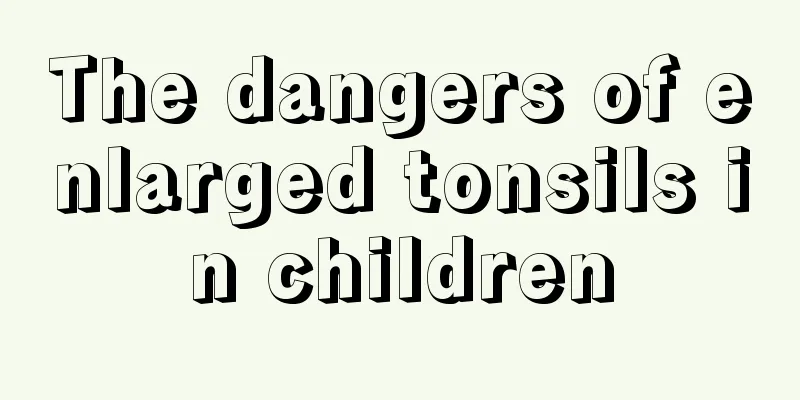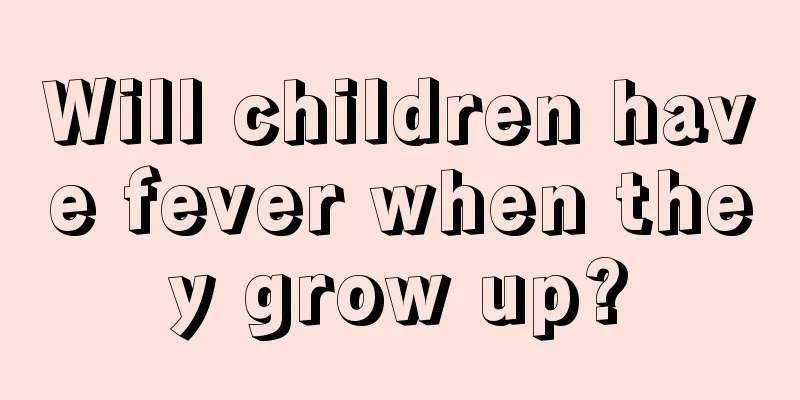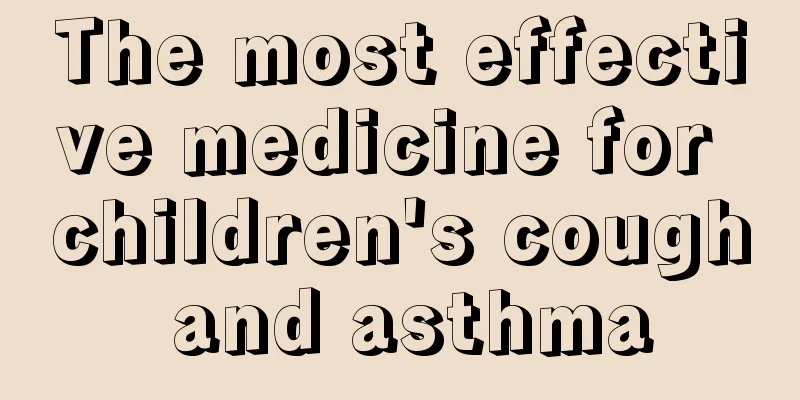The dangers of enlarged tonsils in children

|
For children, the immune function is not yet fully developed. If you do not pay attention in daily life, it is easy for the child to have enlarged tonsils. We know that tonsils are immune organs. When tonsils are enlarged, it will not only cause inflammation, but also cause other complications. For example, children are prone to snoring and obesity, which will directly or indirectly affect the child's health. The dangers of enlarged tonsils in children 1. Snoring Snoring is a major symptom of enlarged tonsils, which is caused by enlarged tonsils blocking the airway. In severe cases, it can develop into sleep apnea, resulting in hypoxia at night. Long-term hypoxia will prevent children from getting a good rest at night, causing them to stay in bed in the morning, feel tired during the day, have a bad temper, and become easily irritated. In addition, children who snore frequently are four times more likely to develop ADHD than ordinary children. These children often show signs of inattention in class and are hyperactive. 2. Nocturnal enuresis Otolaryngologists have found that children with enlarged tonsils often wet the bed at night. This may be because enlarged tonsils cause children to have irregular breathing at night, sleep apnea, and the brain is in a state of hypoxia, unable to control the bladder contraction muscles, resulting in urination awareness disorder. 3. Obesity Obese babies usually have heavy phlegm and are prone to coughing up phlegm. In addition, enlarged tonsils and thick fat in the neck and chest squeeze the airway, increasing respiratory resistance, seriously affecting the quality of sleep at night, thus endangering the baby's physical and mental health. At the same time, obese babies tend to be lazy, listless during the day, and unwilling to exercise, forming a vicious cycle that causes the child's weight to continue to increase. 4. Recurrent upper respiratory tract infections Babies with enlarged tonsils are prone to repeated acute upper respiratory tract infections, such as acute suppurative tonsillitis, acute otitis media, rhinitis, sinusitis, and bronchitis. Children often experience symptoms such as throat discomfort, voice changes, occlusive nasal sounds when speaking, coughing and spitting, asthma, and low fever. 5. Adenoids Due to long-term mouth breathing, the air flow impacts the hard palate, causing it to deform and arch, affecting the development of facial bones. The maxilla is long and narrow, the hard palate is high and narrow, the teeth are protruding, the dentition is irregular, the bite is poor, the mandible is drooping, the upper lip is short, thick and upturned, the lower lip is hanging, the outer canthus is pulled down, and the nasolabial groove is shallow and flat. Coupled with the baby's lethargy and dull facial expression, this is the "adenoid facies". |
<<: Children's white blood cell count is high
>>: Causes of swollen tonsils in children
Recommend
Children's character development
The ancients said that human nature is good, and ...
Red spots on the child's face after vomiting
Some children are very fragile when they are youn...
What to do if your child has swollen abdominal lymph nodes
Abdominal lymphadenopathy in children is a common...
Pseudo-pectus excavatum
I guess many people have never heard of the term ...
What are the causes and symptoms of headaches in children?
There are many reasons that cause children's ...
Children's vaccination knowledge parents should know
When vaccinating children, you must pay attention...
At what age does a baby stop feeding at night?
Many mothers get up at night to feed their babies...
What to do if children's hair turns yellow
The problem of children's yellowing hair is a...
How many times a day does a baby who is not yet one month old poop?
There is a lot to know about babies. Can the numb...
Two-year-old baby has red bumps all over his body
The baby's skin is very delicate and easily i...
What should I do if my baby has a low-grade fever for several days?
It is quite common for babies to have a fever. If...
What to do if your eight-month-old baby has a lump in the breast
Some mothers found a small lump the size of a soy...
What should I do if my baby keeps coughing?
The little children are disturbed and threatened ...
What should I do if my 4-month-old baby has a stuffy nose?
Almost every parent with a child will encounter t...
Is bone cracking in teenagers due to calcium deficiency?
Teenagers often encounter calcium deficiency prob...









